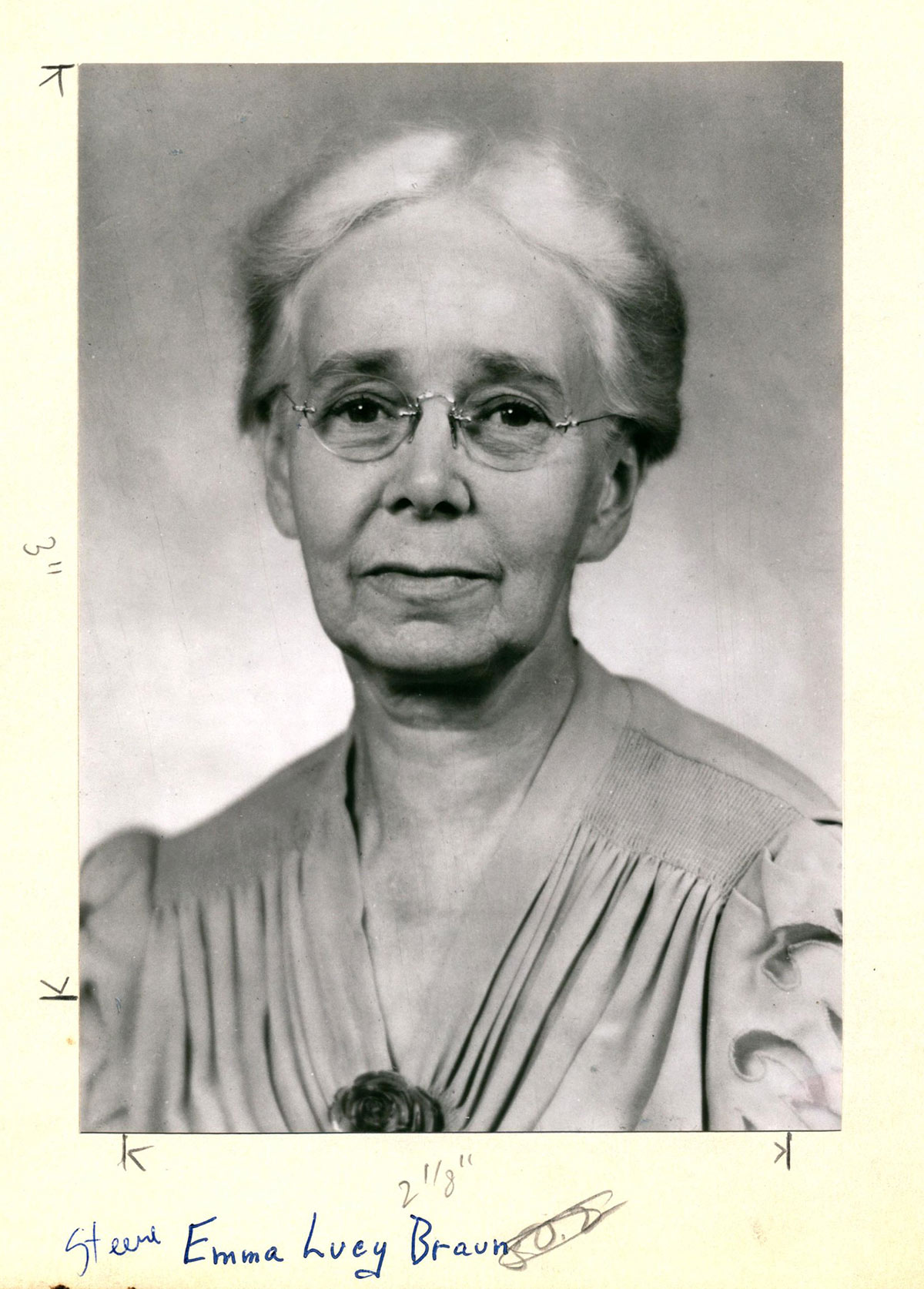Some years ago, CPC held a board meeting in Cincinnati, and one of the field trips was somewhat unusual – to visit the grave of one Emma Lucy Braun. This eminent scientist, and plant conservationist, has inspired many in the CPC network and decidedly deserved the homage paid to her.
From vouchering species across the landscape to laboratory work studying the relationship between plants and bacteria and everything in between, botanical studies in the US have been supported by women throughout history – even in times when women weren’t always prevalent in science. Emma Lucy Braun (Lucy), Ph.D., is particularly notable not only for the work she did, but the recognition that she received in an era when, despite great work and potential, such recognition wasn’t always given. In this issue, Valerie Pence, Ph.D., recognizes Lucy Braun as an inspiration in her plant conservation efforts, and it can be safely assumed that Valerie isn’t the only one.
Lucy Braun was an early advocate of plants. She established the Cincinnati chapter of the Wild Flower Preservation Society in the 1920s and also served as editor of the organization’s journal. She worked to conserve the 22 acres of Lynx Prairie that eventually led to the establishment Edge of Appalachia Preserve System and home to several rare plants.
Upon cataloguing an updated flora of the Cincinnati area in the 1930s, Lucy Braun compared it with the flora completed 100 years prior, providing a model for analyzing changes in a flora over time. Her book Deciduous Forests of Eastern North America, originally published in 1950 is still readily available. She described multiple species, and has had multiple species named in her honor. She served as the first female president of the Ecological Society of America and received many awards and honors for her work as a botanist and ecologist. And, not only did she accomplish great things herself, but she helped introduce other women into the world of botanical research, with nine of her fourteen graduate students being women. She did so during a time when it was uncommon for female professors to mentor any graduate students.

Lucy Braun’s work with and for plants stands today and is truly inspiring to all of us who strive to save plants today.